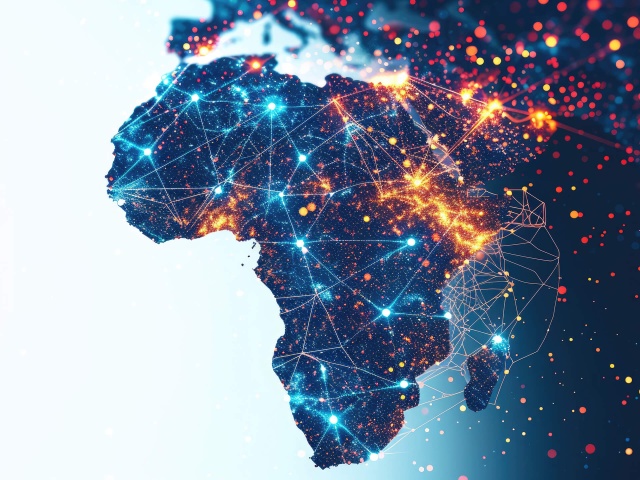The challenge of digital sovereignty and data localization policies is finding a balance.
With the surging adoption of cloud technologies, digital sovereignty and data localization are now emerging as hot-button geo-political issues around the globe. These concepts hold the potential to reshape the geopolitical landscape and, if implemented right, offer a chance for developing nations to leapfrog the baggage of legacy technologies and poor governance, and build a truly sovereign capability in IT and technology.
If implemented poorly, however, the geopolitical ramifications could be widely felt around the globe.
A battleground for superpowers
Africa’s digital landscape is undergoing a rapid transformation, fueled by a surging demand for cloud services. The continent’s public cloud revenue reached a staggering $8.3 billion by the end of 2023, surpassing India’s $6.2 billion. This growth trajectory is projected to continue, with annual increases of 25-30% anticipated until 2028, dwarfing the growth rates expected in Europe (11%) and North America (10%).
This dynamic market has attracted the attention of global superpowers, each vying for technological dominance and influence over the future of Africa’s digital ecosystem. However, beyond financial gains, the objective is to establish a global digital order that reflects their respective values.
But the battleground for technological influence extends beyond hardware and software – it’s a contest over data privacy, security, and standards.
The players and their strategies
China
Through its ambitious Digital Silk Road initiative, China has poured billions into Africa’s digital infrastructure. Several African nations rely heavily on China as their primary technology provider, particularly for large-scale infrastructure projects. Huawei, a Chinese tech giant, exemplifies this strategy with its $300 million investment in African data centers and cybersecurity initiatives.
United States
In response, the US launched the Digital Transformation with Africa (DTA) initiative, committing $82 million in 2023 for new digital infrastructure projects with over $350 million committed in total. Additionally, it facilitated the launch of data centers in Ghana and Kenya through partnerships with African Data Centres (ADC) and a $300 million loan facility. Major US cloud providers like AWS are also establishing a presence, with a local facility having opened in Lagos in mid-2023.
European Union
The EU, alongside its partners, is mobilizing over €1 billion in sustainable investments for digital infrastructure and digital service platforms across Sub-Saharan Africa over the coming years.
Africa needs investment but at what cost?
Africa’s digital transformation hinges on significant investment. While the involvement of global superpowers has fueled rapid growth, it’s not without its complexities.
The influx of capital has facilitated the construction of crucial infrastructure, such as data centers, and the introduction of advanced technologies. This, in turn, has fostered economic growth, improved connectivity, and opened doors to new opportunities for citizens and businesses alike.
However, this reliance on external actors comes at a cost.
The dominance of foreign firms has eroded digital sovereignty and security. With limited data center capacity (less than 1% globally), Africa’s data is often processed and stored outside the continent. Additionally, a heavy reliance on foreign expertise has stifled the development of domestic talent and created a dependency structure that hinders long-term, sustainable growth.
The challenge lies in striking a balance. Africa needs continued foreign investment to bridge the digital divide. However, it must also prioritize nurturing domestic talent and building its own technological infrastructure and policies to support it.
Balancing sovereignty with growth
The explosion of cloud technology and massive state-backed investments in Africa’s digital infrastructure create a complex policy landscape.
A new wave of digital sovereignty and data localization policies is sweeping across Africa as nations strive to take ownership of their digital future. Regulations like Nigeria’s NDPR, South Africa’s POPIA, and Kenya’s Data Protection Act reflect the need to safeguard the personal data of African citizens, foster domestic growth, and enable economic empowerment. By retaining control over data, African nations hope to capture the economic value it generates, reducing dependence on foreign companies.
Notably, these policies largely draw inspiration from the EU’s GDPR (albeit with certain deviations) as it arguably sets the standard for data privacy worldwide.
But unlike the EU, Africa is in the early stages of its digital development and this moment presents a unique opportunity. Unlike established nations burdened by legacy infrastructure, African countries have a unique chance for a fresh start. They can build their digital ecosystems from the ground up, prioritizing data sovereignty and data localization with modern technologies. This “greenfield” advantage allows them to design data governance frameworks that prioritize citizen well-being and economic development, potentially avoiding pitfalls faced by others.
While these goals are laudable, implementing such policies effectively can be challenging.
Therefore, finding the right balance is crucial.
Growth-friendly regulations — Overly restrictive measures could hinder the very growth they aim to promote. Striking a balance that fosters innovation and attracts foreign investment while safeguarding national interests is essential.
Building capacity — Invest in IT manufacturing and skilled personnel to manage and maintain its own data infrastructure. Collaboration with foreign partners for knowledge transfer can help bridge this gap.
Harmonized approach — A unified approach across African nations will be more effective than individual country-level regulations. Issues with the American data privacy regulations, which have been largely state-based, are a testament to this. Regional cooperation can ensure consistency and avoid creating unnecessary hurdles for legitimate cross-border data flows.
Technological interoperability — Interoperability reduces dependence on one vendor or nation, preventing users from being locked in.
The private cloud is still important — Governments should be hesitant to move all data to public cloud platforms. On-premise data systems or contracts with smaller cloud service providers should continue to dominate government cloud spending in Africa.
Data sovereignty and data localization are complex issues with far-reaching implications. For countries starting their digital journeys, this moment presents a unique opportunity to learn from others and build their digital future with transparency, security, and citizen well-being at the core.
However, with so many vested interests inside Africa and from around the world, there is a lot to lose and a lot of competing priorities. A failure to get the new wave of digital sovereignty right could have a globally destabilizing effect.







